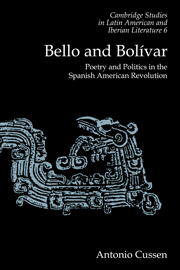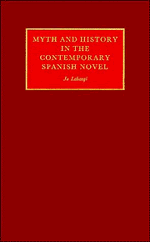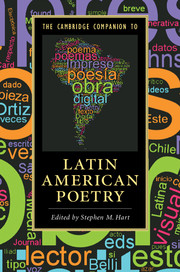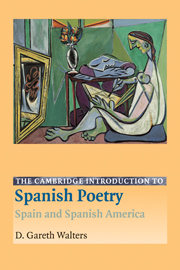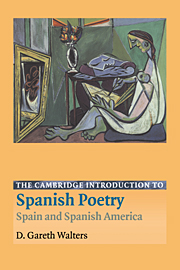Bello and Bolívar
In June 1810, the Venezuelans, fearful of French aggression, sent a diplomatic mission to London in search of an ally. The mission was headed by Símon Bolívar; the secretary was Andres Bello. Bello remained in London through the Spanish American Revolution and became one of the most accomplished members of the Spanish-speaking intelligentsia. In this book, Antonio Cussen reconstructs Andres Bello's account of the Revolution. The official history of the Revolution, the heroic history of Bolívar, is replaced by the account of a poet, who was first Bolívar's teacher, and later his critic. Through a detailed study of the manuscripts of Bello's unfinished poem "América" the author argues that Bello recorded the disintegration of the Augustan model of power and culture and intimated the inevitable approach of liberalism with a certain longing for the classical culture of his youth.
- An important contribution to debates about cultural ideology in the time of revolution
- A unique insight into the relationship between a statesman and a poet
- A new analysis of the most influential poetic account of Latin America at the time of revolution
Reviews & endorsements
"This is a terrific book. The dramatic and forceful personalities of Spanish America's independence period have been well documented and their place in the world military history amply secured. With this book, Antonio Cussen resurrects the intellectual and cultural milieu within which Spanish America's independence generation existed, and reminds us just how much ideas and words mattered to them." H-Net Reviews
"...a fascinating and eminently readable narrative about two historical figures (yes, even the bookish Bello) that I and many others find profoundly seductive." Elizabeth Garrels, Latin American Literary Review
Product details
May 2009Paperback
9780521111393
224 pages
229 × 152 × 13 mm
0.34kg
Available
Table of Contents
- Acknowledgments
- Introduction
- Part I. Caracas (1781–1810):
- 1. Augustan Caracas
- 2. Revolt
- Part II. London (1810–29)
- 3. Independence
- 4. The reconquest
- 5. The decided revolution
- 6. The new Augustus
- 7. The campaign of the monarchists
- 8. Poetry visits America
- 9. 'Agricultura'
- 10. Bolívar poetics
- Part III. Santiago: (1829–65):
- 11. The liberal poets
- 12. The exile
- Appendix
- Notes
- Bibliographical note
- Index.

